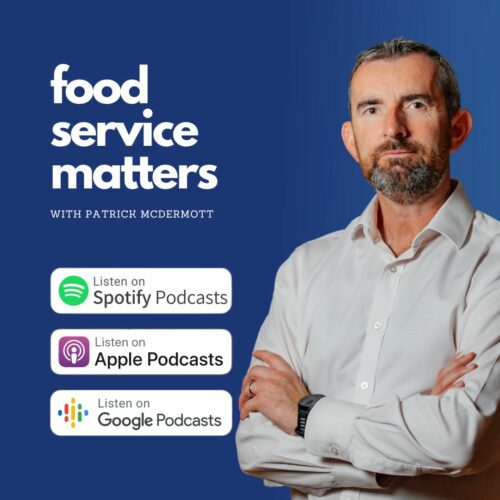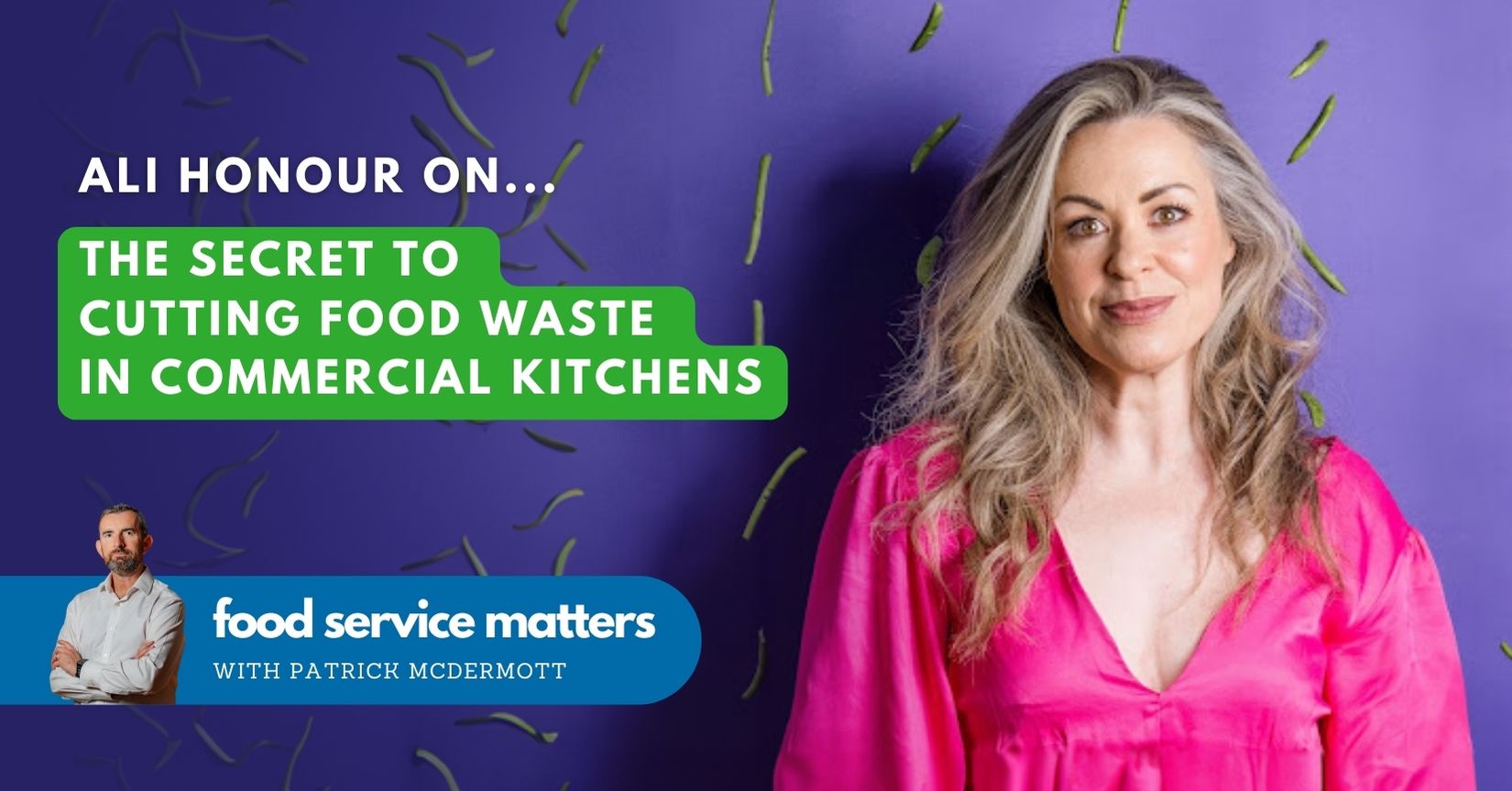The challenge of reducing food waste not only affects our planet’s future but is essential for profitability and sustainability in commercial kitchens. The question is: what can businesses do to cut the amount of food being thrown away?
Kicking off Season Two of the Food Service Matters podcast, host Patrick McDermott talks to Ali Honour, a climate-conscious chef, activist and adviser focusing on food waste and sustainable food systems. Ali is driving positive change with her passion for sustainability and efficiency.
During her 30 years in the food service industry, Ali has mentored clients to increase their profit margins by decreasing kitchen waste and improving efficiency in operations. In this post, we share Ali’s advice on tackling the food waste problem in commercial kitchens with careful assessment, staff empowerment and data tracking.
Assess your current food waste
First, evaluate your existing waste streams. Ali recommends setting up containers around prep and service areas to collect unused ingredients and leftovers for weighing and cost analysis. “It’s a good gauge of where the problems are in the kitchen,” she highlights.
Knowing the quantity of food waste in these disposal streams puts a monetary value on what’s being lost. “I’d put things on the kitchen scales and then be able to say, ‘That’s £4 of brown bread going into the bin,” she says, “so, what can we do to change it?’”
Ali emphasises the importance of knowing what you have in the kitchen and what you don’t.
“Reducing stock is a huge way of seeing the margins and tackling those issues so you’re not just buying things for the sake of it, which happens a lot,” she explains. “By the end of the month, you notice the difference it makes.”
For this reason, assessing stock to make sure you don’t overorder presents a significant savings opportunity.
Engage and educate your team
Getting staff on board is critical for success. To do so, patience and education opportunities are needed, especially if people are used to doing things a certain way. The trick is to explain food waste’s environmental and financial costs in terms they understand without being heavy-handed or presenting them with daunting figures. “It’s about understanding where they’re at and having empathy for the fact that they may not know what you know,” stresses Ali.
She suggests starting with some “quick wins” to subtly change procedures without too much disruption, as well as taking the time to listen to staff concerns and ideas. “It’s about engaging the team, working together, spending quality time with each member and getting to know who they are,” she notes. This knowledge and rapport will eventually empower innovation by, for example, allowing chefs to showcase their creativity in utilising ordinarily discarded food parts, like cauliflower leaves, in new recipe creations.
Ali also advocates for “closed loop” menu planning, whereby leftover ingredients from one service are incorporated into the next, and so on – a highly efficient system that minimises food waste in commercial kitchens. Again, however, success depends on team cooperation and coordinated planning, but the benefits are immense. Cost reductions and improved margins emerge from more precise ordering and less discarding, and, importantly, you’ll open the door to more innovation as staff unlock new ways to make the most out of previous scraps.
Improve using data tracking
Another significant factor is data. Ali describes just how fruitless conversations with management can be without the right facts and figures. Data tracking software like Digitally can help. “All the data is there on the screen in front of you, which is key for showcasing your margins, profitability and labour costs,” she adds.
Digital tools are indispensable for routinely measuring waste volumes, monitoring stock ordering, analysing sales data and calculating margins. But Ali advises businesses not to expect overnight results. Executing a comprehensive food waste reduction programme takes time to reach its full potential.
“Often, people don’t give themselves enough time,” she notes. “You won’t see things change in three months. It takes six, nine, even 12 months to see the difference.”
Persistence and an openness to continual progress are essential.
The commercial kitchen provides unique challenges when working toward zero waste. However, Chef Ali Honour’s expert perspective makes clear that substantial financial and environmental gains are unlocked with the right knowledge, passion and tools.
To listen to Patrick’s full interview with Ali Honour, check out the Food Service Matters podcast on Spotify, Apple Podcasts or Google Podcasts.
Patrick is CEO of DigiTally, which is playing an increasingly important role as an intuitive and interconnected simple food service software that helps save time, increase margins and combat food waste. Keen to learn more? Let’s talk! Book a 30-minute call with Patrick and get your demo set up today.




